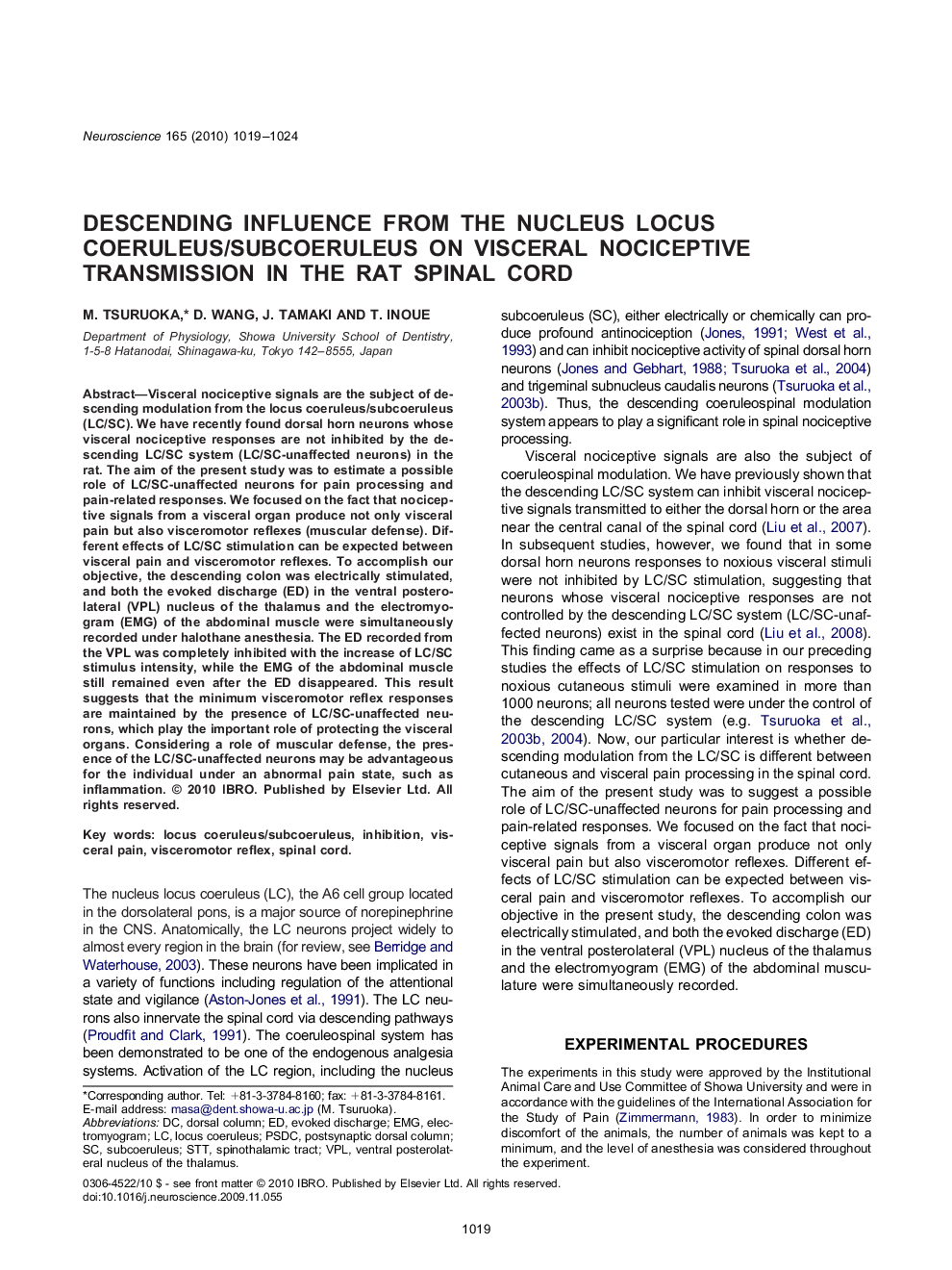| Article ID | Journal | Published Year | Pages | File Type |
|---|---|---|---|---|
| 6277266 | Neuroscience | 2010 | 6 Pages |
Abstract
Visceral nociceptive signals are the subject of descending modulation from the locus coeruleus/subcoeruleus (LC/SC). We have recently found dorsal horn neurons whose visceral nociceptive responses are not inhibited by the descending LC/SC system (LC/SC-unaffected neurons) in the rat. The aim of the present study was to estimate a possible role of LC/SC-unaffected neurons for pain processing and pain-related responses. We focused on the fact that nociceptive signals from a visceral organ produce not only visceral pain but also visceromotor reflexes (muscular defense). Different effects of LC/SC stimulation can be expected between visceral pain and visceromotor reflexes. To accomplish our objective, the descending colon was electrically stimulated, and both the evoked discharge (ED) in the ventral posterolateral (VPL) nucleus of the thalamus and the electromyogram (EMG) of the abdominal muscle were simultaneously recorded under halothane anesthesia. The ED recorded from the VPL was completely inhibited with the increase of LC/SC stimulus intensity, while the EMG of the abdominal muscle still remained even after the ED disappeared. This result suggests that the minimum visceromotor reflex responses are maintained by the presence of LC/SC-unaffected neurons, which play the important role of protecting the visceral organs. Considering a role of muscular defense, the presence of the LC/SC-unaffected neurons may be advantageous for the individual under an abnormal pain state, such as inflammation.
Keywords
Related Topics
Life Sciences
Neuroscience
Neuroscience (General)
Authors
M. Tsuruoka, D. Wang, J. Tamaki, T. Inoue,
